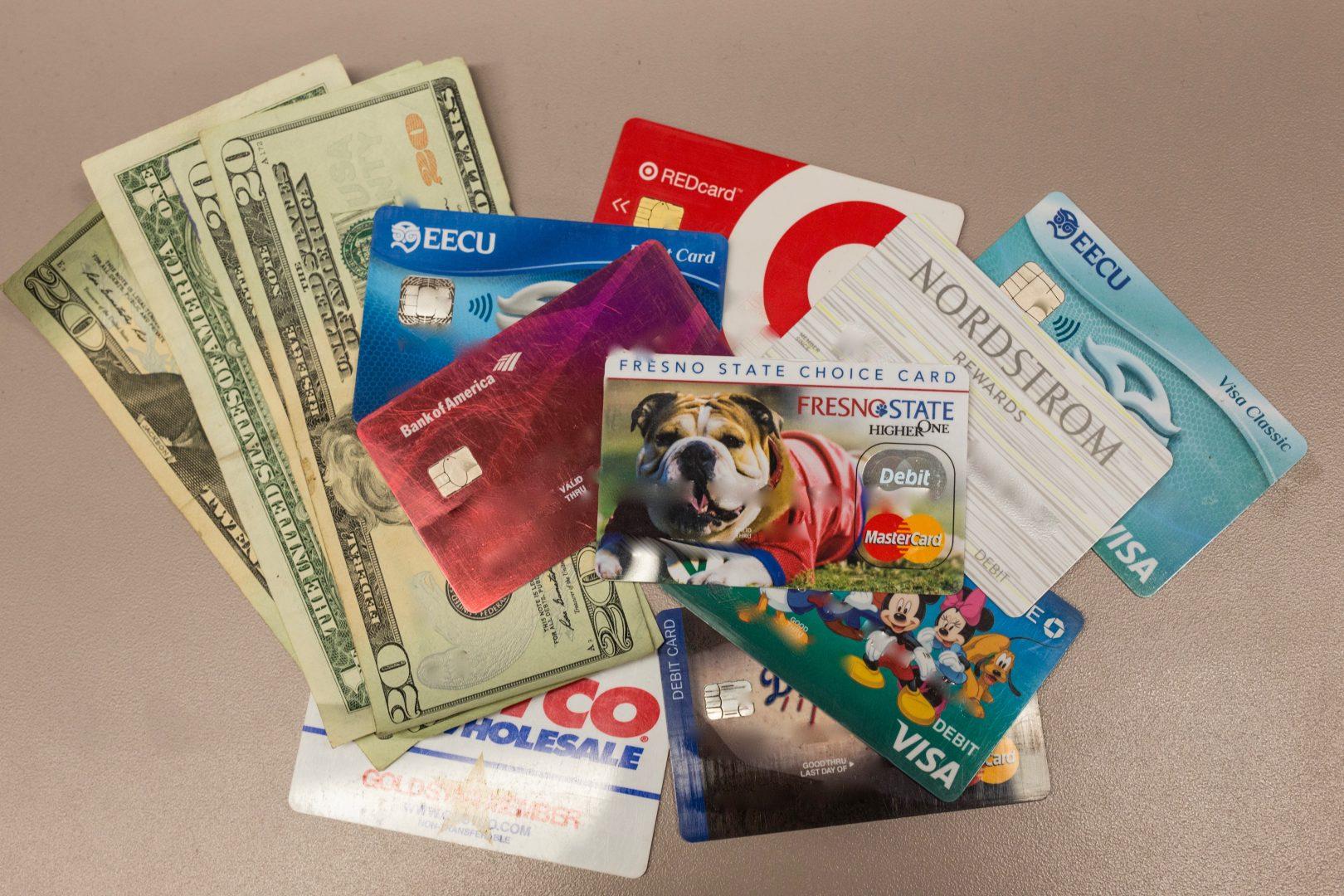Some students will spend the money they earn, others will save it — some have managed to do both.
Associate professor and chair of the department of economics at Fresno State, Dr. David Vera, has tips for those who have not mastered saving and spending wisely on their own.
He uses the “50, 30, 20” rule. What it means: use 50 percent of your income for your needs; 30 percent for your nonessentials — such as dining out and coffee — and 20 percent to save or repay debts.
For Vera, paying off loans, like student loans, and clearing oneself from debt “is a form of savings.”
Michael Olague, a Fresno State alumnus with an accounting degree, said he began saving when he was a freshman at Fresno City College.
In a smart move, he said, “I opened up investment accounts freshman year and treated long term savings like a bill.”
Depending on his monthly income, Olague deposited a dollar amount each week into his investment account.
Vera advises to have a savings account with a few months of income saved. And when you have an established career, open a money market account.
It gives the user “liquidity but with higher return,” Vera said.
Olague did just that. And although he qualified for financial aid, he still took out loans. He didn’t need the loan to pay to earn his degree or make ends meet, however.
“I did it because I could put that cash to work,” he said.
For example, if he borrowed $24,000 in loans at Fresno State, he would owe that amount plus 4 percent in interest each year. The benefit of that, he said, is that he put the money into an investment account that earned him between 7 to 14 percent of his investment annually.
As for making payments on the loan, he said, “I’ll make minimum payments as long as possible because the earnings outweigh the loan interest.”
Olague said he had one credit card throughout college. But, he said, at graduation he didn’t owe a dollar.
Vera, the economics professor, also suggests graduating without owing credit card debt. He encourages students to try to graduate with as little to no debt as possible. But, for those who have no choice but to take on debt, he said: use the 20 percent of income to pay the loans off.
And Vera offered that “You should always have money to have a little bit of fun,” if paying off debt gets too overwhelming.
Olague seemed to have followed Vera’s advice. Since graduation, Olague said he vacationed in Australia, New Zealand and Mexico before starting his desk job as an accountant in Fresno.
He said he currently owes $2,900 on his credit card, but that his debt doesn’t worry him. “I valued the experiences way more than I did not having debt,” Olague said. “Reward yourself when possible, even if you have to borrow a bit or pull out of the funds.”
He added, “You have no idea how those experiences can alter your perspective and advance your growth.”
During the holiday season, when it comes to holiday shopping, Vera said it is important to have a planned budget and a list before going into stores and buying gifts.
“Have a list to determine how you’re going to spend your income,” he said. Part of the 30 percent for nonessentials goes to spending for the holidays, Vera said.
Samantha Gomez, a master’s student in health promotion, said she was lucky enough to graduate without student loans also. She said she attended community college, where she received a presidential scholarship. However, her saving efforts didn’t end there.
“I applied to many different scholarships, even ones that I knew I wasn’t going to get. You never know when something like ‘free money’ might land in your pocket,” Gomez said.
To save money, she rented textbooks from Amazon. She rented international versions of books for way, way less.
Like Gomez’s tips on saving money on textbooks, Vera gave a few more tips on money-saving habits and explained why it’s important to save for the future. He said when paying off a loan, do not get yourself into paying for additional loans, such as a car.
Vera said: keep the car and smartphone for as long as possible and stay focused on paying student loans first.
But he warns of credit card interest going up the longer you have it. He said, at first, you may be offered a low interest rate — the longer you have the card, the interest rate goes up.
“Be aware of terms and conditions,” he said. “Make sure to pay the balance.”
Long term money-saving benefits outweigh not buying your Starbucks coffee or having the newest smartphone, Vera said.
“There are things you need a lot of money for,” Vera said, like a home down payment, a child and retirement. And although those expenses may be far into the future for some, Vera suggests a retirement plan while also holding the possibility of taking care of other family members.





Peter Allen • Nov 30, 2017 at 10:40 pm
Easiest way for College Students (and everyone else too) to save money is to get a Hand Bidet Sprayer. With these you hardly need toilet paper anymore (a small towel works better) and you will save on toilet paper everyday forever, never have to worry about running out again and enjoy superior hygiene. See bathroomsprayer.com.